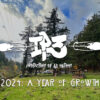|
Getting your Trinity Audio player ready...
|
On July 4th, 2023, Indigenous Peoples Power Project staff, in solidarity with NDN Action Network and hundreds of Rapid City, SD community members were invited to take part in a March Toward Justice, calling for accountability of the South Dakota police state that continues to disproportionately target, criminalize, and kill Indigenous residents. Among issues faced by Indigenous residents of Rapid City, 100% of all public school expulsions are Indigenous students according to the Civil Rights Data Collection. From 2001 to 2023, there have been 79 police involved shootings statewide, 75% of those fatal shooting victims were Indigenous people, and while South Dakota’s Indigenous population is less than 10%, they make up 60.03% of the Pennington County inmate population, and that’s barely scratching the surface of racial disparities experienced by our relatives on their own land. For Indigenous residents protecting their families and children from white extremest police violence in Rapid City, these statistics represent a direct school to prison pipeline that plague the efforts of Indigenous groups, our families, communities, and our allies. If we are to ever achieve the peace we seek, the police in Rapid City must be held accountable, and drastic change within the Rapid City Police Department and the Pennington County Sheriff’s Office must be had now.

Among the demands issued during the March Toward Justice, organizers and community members are calling for the end to the killing of Indigenous people by the police, an immediate Civil Rights inquiry into the Rapid City Police, release of all body camera footage, removal of School Resources Officers (SROs), to defund the police and increase community controlled education, rescind Senate Bill 4, and an immediate, comprehensive third party investigation into the Rapid City Police Department and Pennington County Sheriff’s Office. Besides racism experienced by Indigenous residents in Rapid City by the police, Sunny Red Bear, NDN Action Organizer points out that racism runs deeper than police violence, and that “we’ve seen racism play out in our health care systems, and our school systems, housing, jobs and employment.” “We see that our children are being discriminated against, they’re being racially profiled and criminalized within our schools, they’re being searched, they’re being accused and followed into bathrooms.” At a press briefing held just days before the March Toward Justice, she states that, “these are not just statistics that we throw around. These are relatives, these are families that have been broken and torn apart, and we’re here to demand justice. And we’re putting the Rapid City Police Department on notice. We’re here letting them know that we will no longer allow these things to happen in our community. That we stand together as a community, and not just Native people. This is not just Native people standing, this is Native people, our allies, that we have to stand together as a community in unity and in solidarity, and that’s what we’re doing today.”

In the days leading up to the march, organizers, family, and children peacefully gathered in an art build to share in community, ceremony, good food, music, smiles, and all the good vibes; you know how we do. Our youth and young ones offered up prayers for the community in a good way, smudged us down with that good medicine, sang songs for us, and led a caravan through the city to deliver food and hope to those in need. It was a beautiful sight to see those smiles, but this is the beauty we see every day that the police and political leadership in Rapid City are blind to. Meanwhile, new mayor, Jason Salamun is being sworn in carrying on with the same alarming and anti-Indigenous rhetoric that creates turbulence for Indigenous residents of Rapid City and keeps white residents in the dark. When you are as violent as officers and political leadership are in Rapid City, perhaps Indigenous joy offends you. Perhaps in your eyes, equity and equal treatment of the law are reserved only for your white counterparts and we’re rising up to let you know, never again. To the Rapid City Police Department, DO BETTER. To the countless families and relatives who have been affected by police violence and racist treatment, continued prayers and healing for you and your families. These young ones are coming up strong with the tools and support to see justice through, and we couldn’t be more proud of the work they’re doing.
#LandBack
Nic Sanford Belgard
Indigenous Peoples Power Project
Main Photo Credit: Jose Arguello, Wambli Ska Society
If you’d like to support NDN Action Network, please join the growing list of of supporters by adding your organization to the sign-on letter, sign the petition: No Killer Cops on Stolen Land, and donate to the NDN Action Network Legal Fund. Resources and links at www.NDNActionNetwork.org.
Watch full coverage of the March Toward Justice below.









